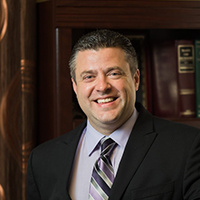Flint Criminal Lawyer, Texas
Sponsored Law Firm
-
 x
x

Click For More Info:
-
Law Office of Robert R. Jones III
2411 Emancipation Ave, Suite 202, Houston, TX 77004» view mapCriminal Defense Expert Representation for Reasonable Rates
If you need representation, call me 24/7.
800-883-8760
Jeremy Daniel Coe
✓ VERIFIEDPersonal Injury, Immigration, Criminal, Divorce & Family Law
Jeremy Coe is a fourth-generation East Texan. He graduated from Winnsboro High School in 1991, where he was selected as “Best All-Around Boy.” A... (more)
Richard B. Patteson
✓ VERIFIEDEstate Planning, Elder Law, Family Law, Criminal, Estate
Put 30 years of experience to work for you.
A native of Jonesboro, Arkansas, Richard completed high school at The Hill School, a preparatory school in Pottstown, Pennsylvania, then graduated cum... (more)
Dale Rex Kirby
Social Security, Wills, Family Law, Criminal
Status: In Good Standing Licensed: 59 Years
John Wendel Greenslade
Family Law, Criminal, Insurance, Personal Injury
Status: In Good Standing Licensed: 14 Years
Jarrod Donald Heath
Juvenile Law, Oil & Gas, Family Law, Credit & Debt
Status: In Good Standing Licensed: 13 Years
 Robert Jones San Antonio, TX
Robert Jones San Antonio, TX AboutLaw Office of Robert R. Jones III
AboutLaw Office of Robert R. Jones III Practice AreasSpecializations
Practice AreasSpecializations



